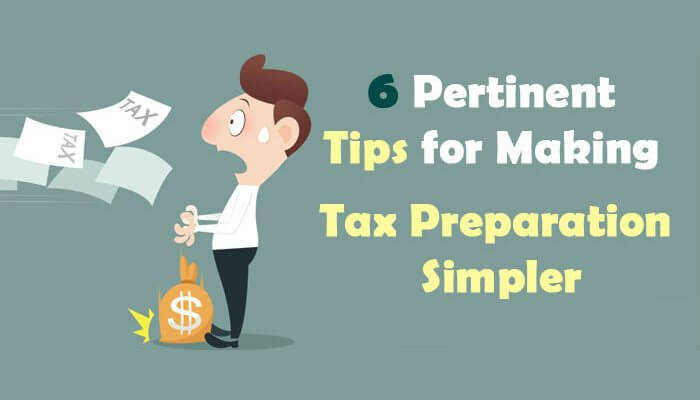As the familiar adage goes, there are only two certainties in life: death and taxes. While we can’t escape the inevitability of tax season, we can certainly transform the often stressful and anxiety-inducing process of tax preparation into a more manageable and even, dare we say, simpler task. For those in the industry, understanding practical tips for tax preparers can make this transformation smoother for both professionals and their clients.
Navigating the intricacies of tax preparation can be akin to embarking on a journey through a labyrinth of paperwork, numbers, and regulations. Many individuals find themselves grappling with a sense of being overwhelmed and procrastinating, leading to a last-minute scramble to meet filing deadlines. In contrast, some unintentionally overlook the due date or intentionally choose to delay, perhaps believing that they operate best under the pressure of impending deadlines.
The reality is that everyone makes mistakes, especially when faced with the pressures of collecting paperwork, crunching numbers, and striving to minimize tax obligations. However, what might initially seem like a harmless delay or oversight can result in costly consequences beyond your bank account.
This blog aims to make the daunting task of tax preparation more approachable. By implementing the following 10 tips for tax preparers, you’ll simplify the process and better understand how strategic planning and organization can turn tax season from a burden into an opportunity for financial empowerment.
10 Effective Tips to Streamline your Tax Preparation Process
1. Stay Informed About Tax Policy Changes
Every year, the government may introduce changes to taxation regulations. Before devising a tax preparation plan for the upcoming year, carefully review any new tax guidelines enacted by the government. Staying informed about policy changes ensures that your tax preparation aligns with the latest regulations.
2. Organize Tax-Related Documents:
Efficient tax preparation begins with keeping all necessary documents in order. From accounts receivable to accounts payable, start collecting and organizing these documents early on. Having them readily available at the time of filing minimizes complications and ensures a smoother process.
3. Proactively Request Forms:
If you anticipate needing forms for loans or education-related purposes, request them in advance. Institutions may take time to process and allocate these forms, so obtaining them ahead of time prevents last-minute obstacles during the tax preparation process.
4. Conduct Preliminary Calculations:
To leverage deductions and credits effectively, perform preliminary calculations using anticipated tax rates for the upcoming season. Whether handled by a tax preparer or yourself, this proactive approach helps identify potential savings and ensures a more strategic approach to tax planning.
5. Thoroughly Identify Deductions:
To reduce tax liability, diligently identify all possible deductions available. Common deductions for business owners include reimbursed employee expenses related to travel, rental property, insurance, and education. Take the time to explore and utilize all available deductions for a more favorable tax outcome.
6. Explore Investment Opportunities:
Allocating funds to investment or retirement accounts is a popular strategy for minimizing taxes. Consider maximizing contributions to these funds to optimize tax benefits. This approach not only aids in tax planning but also contributes to long-term financial security.
7. Consider Outsourcing Tax Preparation Services:
Hiring professional outsourcing services for tax preparation is an effective option. Outsourcing firms specialize in conducting tax preparation efficiently, adhering to deadlines and ensuring that all potential deductions are utilized. This allows you to focus on more critical tasks while entrusting the tax preparation process to skilled professionals.
8. Optimize Business Expenses:
Review and optimize business expenses to maximize deductions. Identify areas where expenses can be reduced or restructured to align with tax regulations. This proactive approach not only benefits your tax situation but also contributes to overall business financial health.
9. Keep Personal and Business Finances Separate:
Maintaining a clear distinction between personal and business finances is crucial. Separate bank accounts and credit cards for business transactions help streamline tax preparation, reducing confusion and ensuring accurate reporting of income and expenses.
10. Utilize Technology for Record-Keeping:
Leverage technology for efficient record-keeping. Use accounting software or cloud-based platforms to store and organize financial documents digitally. This not only enhances accessibility but also minimizes the risk of misplacing crucial records during the tax preparation process.
Conclusion
Incorporating these additional tips for tax preparers into your tax preparation strategy will further enhance efficiency and contribute to a more seamless experience. Stay proactive, stay organized, and make the most of available resources to navigate tax season with confidence. If you are looking for a reliable tax preparation outsourcing partner, get in touch with Accounting To Taxes.
Read Also: What software do accountants use?
